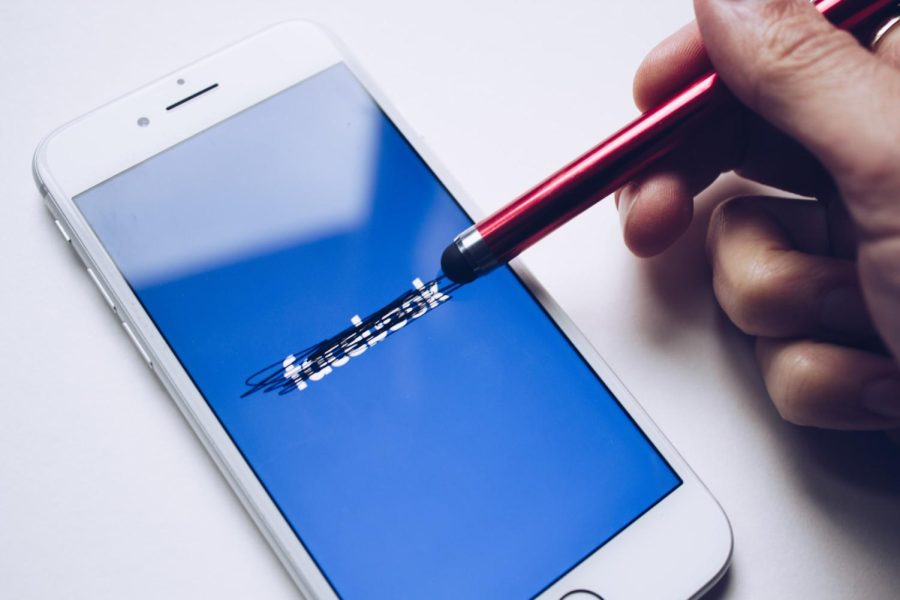Column: The fall of Mark Zuckerberg and Facebook
Photo by Thought Catalog on Unsplash
October 9, 2021
Created in February 2004 by the most notable co-founder and CEO, Mark Zuckerberg, Facebook has been a pioneer in the digital world for connecting, sharing, and expressing pictures, videos, ideas, and opinions globally within just one application.
The $85.96 billion company has vastly expanded since its 2004 inception, garnering several companies underneath its name, such as Instagram and WhatsApp. Currently, Facebook is the largest social media platform with 2.9 billion users worldwide, and that number is growing exponentially.
To the company’s dismay, Zuckerberg is in the headlines for numerous allegations starting from his 2018 court case that moved to the Supreme court alleging that he set up a fraudulent scheme to ‘weaponize’ data. Recently in the news, former Facebook data scientist and whistleblower Frances Haugen has alleged that Facebook lied to the public about resolving hate and violence to increase traffic and engagement—and in turn, profit from those adverse factors.
With all of this negative press and lies and deceit being exposed, is this the end of Facebook?
Social media has become such an integral part of society. So much so that many Americans get their everyday news from Twitter, Instagram and Facebook. Unfortunately, misinformation starts to slip through the cracks causing people to gain information that is not valid. From conspiracy theories to the Jan. 6 riot to the COVID-19 pandemic, social media has been plagued with false advertisements and information.
“It’s easier to inspire people to anger than it is to other emotions. Facebook has realized that if they change the algorithm to be safer, people will spend less time on the site, they’ll click on less ads, they’ll make less money,” Haugen said.
Some may think that it is only the consumer’s responsibility to decipher through the falsehoods. However, I believe that both the consumer and the partner company are responsible for filtering its content since it impacts and alters so many minds daily. According to reports, the algorithm that Facebook uses amplifies toxicity and hatred more than its competitive social platforms like Pinterest or Reddit. We cannot allow this to continue because it damages our livelihoods, the decisions and opinions we make, and the world we live in. Just because social platforms make more money if their content and advertisements are frequently visited, does that mean society should suffer from revenue that the public will never inherit or see? Most definitely not.
It does not just stop there. The harsh and damaging effects of Facebook’s algorithm have extended to Instagram. According to a Facebook data report, 13% of teen girls say Instagram makes thoughts of suicide worse. 17% of teen girls say Instagram makes eating disorders worse. That means that 42 million teenage girls suffer from anxiety, depression, and other mental disorders due to such a popular and “trendy” platform, rather it being Twitter, Facebook, Instagram or Snapchat that almost every person this day in age uses. Generation Alpha, children born after 2010, are basically forced to have social media at such a young age if they want to “fit-in” with social norms. They get the ‘wonderful’ experience of seeing highly altered bodies, vulgarly explicit videos and hateful messages. To make matters worse, the younger you get exposed to life-altering and graphic ideologies, images, and concepts, the harder it is to break the thought process or disease.
It is ridiculous to know that Facebook has done nothing to possibly sever the data in half. In fact, Haugen said that the more depressed young girls are, the more profit that Facebook accumulates because the girls use the app more. I understand that it is also the parents’ responsibility to monitor what their children are consuming. Sadly, parents cannot be with their children 24/7, so these social media platforms must combat this pressing issue immediately.
Coincidentally, right after Haugen came forward with these allegations, both Facebook and Instagram were down for several hours. The phrase “actions speak louder than words” is especially true in this case. The company lost over $7 billion in net worth, and that number is projected to increase. Since Facebook and Instagram have loudly spoken silence, what do we as consumers do? Do we continue to support these platforms, or do we demand regulation from the federal government to slightly (since we cannot monitor everything) protect our next generation of leaders and thinkers?
The decision is up to us. Rome was not built, or in this case, destroyed, in a day.
“Facebook has demonstrated that they cannot act independently. Facebook over and over again has shown it chooses profit over safety.”








